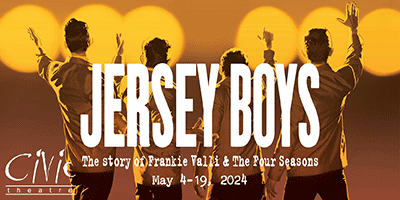DID YOU KNOW?
This week, Did You Know is excerpted from a South Bend History professor’s book, Changed by Grace: After John Locke’s (father of modern psychology) atheistic arguments against Traditional Christian theology it became unbelievable for many people. If we could in fact have no direct knowledge of eternal ideas, then we were also presumably blocked from any possibility of directly knowing ideal realities like God and the human soul.
Medieval theology was reduced to no more than a set of endless and inconclusive debates about things which the human mind could in fact have no knowledge about at all. Not only that, as long as spirituality was based on belief in an infallible holy book, it had become equally vulnerable in that area also by the eighteenth century because Western sailing ships had by that time traveled all over the world. It had been found that every culture had its holy books-the Bible in the west, the Koran in the Arab world, the Upanishads in India, and so on-and they all contradicted one another.
The more the educated western class found out about these other religions, the more apparent it became that all of these traditional holy books contained sections which were only myth and legend, and once one stopped and took a hard look at the Christian Bible, from the outside as it were (in the way that a Buddhist or Hindu would look at it), some of the Bible stories seemed just as farfetched as some of the tales contained in the holy books of these other religious traditions.
As a result, appeals to have faith in the infallibility and verbal inerrancy of the Bible began to have increasingly less and less effect on people in Europe and America. It looked to any intelligent observer, as though the Enlightenment Era had won. There seemed no defense against the triumph of atheism. Christianity in particular should have begun shriveling up and dieing. But it did not!
What Jonathan Edwards and John Wesley discovered was a chink in the Enlightenment philosophers‚ armor, and turned their own attacks back against them. Instead of Christianity beginning to die off, these two theologians sparked a religious revival that was going to make religion far more effective than it had ever been before, even during the High Middle Ages.
All real knowledge, Locke had said, had to be based upon our own personal experience. “What Edwards and Wesley did was to devise a way of preaching spirituality which spoke to immediate personal experience.” “Seeing is believing,” and the reality of what we can see happening in our own lives, and the happiness in the lives of others who practice spirituality, is inarguable.
In A.A. literature, the principle of “seeing is believing” is stressed over and over and it was experimental spirituality which these two men taught. Richmond Walker, the second most-published early A.A. author, points to this repeatedly in his Twenty-Four Hours a Day meditation book – For example the reading for April 25th: “I don’t believe that A.A. works because I read it in a book or because I hear people say so. I believe it because I see people getting sober and staying sober and experienced it myself! An actual personal experience is the demonstration that convinced me. Once I experienced the change in me and saw it in other people too, I couldn’t help but believe that A.A. worked because “seeing is believing.”
- Celebrating 20 Years Of Community At The Stand - April 12, 2024
- First Positive Case Of Chronic Wasting Disease In Indiana - April 12, 2024
- Southwest Allen County Schools Embark On Major Tree Plantings - April 12, 2024


